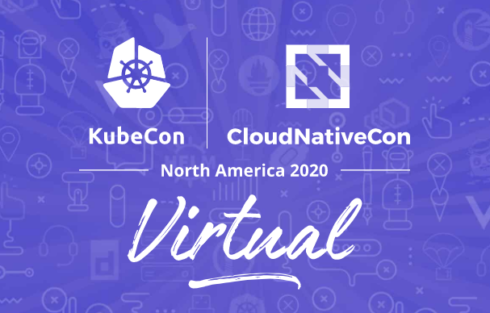
KubeCon + CloudNativeCon North America 2020 kicked off today virtually. Here are a number of announcements from the event:
Kubernetes Security Specialist certification now available
This certification was first announced by the Linux Foundation and CNCF in July. The Certified Kubernetes Security Specialist (CKS) requires a two-hour, performance-based exam to prove that a person possesses the skills, knowledge, and competence on a range of best practices for securing container-based applications and Kubernetes platforms.
The exams tests competencies such as cluster setup, cluster hardening, system hardening, minimization of microservice vulnerabilities, supply chain security, and monitoring, logging, and runtime security.
“With the widespread adoption of cloud and container technologies the world over, it was no surprise our 2020 Open Source Jobs Report found cloud to be the most in demand skill amongst open source employers, with security closely following,” said Clyde Seepersad, SVP and general manager of training & certification at The Linux Foundation. “Cloud technologies have provided us with countless new applications and use cases, but as they become more and more ingrained into our lives and businesses, it’s essential that they be used securely. This certification will enable qualified professionals to demonstrate they have both the necessary cloud and security expertise to proactively prevent most security issues, and to quickly remediate others.”
Red Hat announces new capabilities for OpenShift
In the latest version, Red Hat has created a developer experience that will be well-suited to accelerate cloud-native applications. New capabilities include full support for Knative eventing in OpenShift Serverless 1.11 and a Red Hat build of Quarkus, which is a Kubernetes-native Java stack.
It also added features to help address challenges in hybrid-cloud, such as new edge computing features and key capabilities for public sector Kubernetes deployments, such as availability on AWS GovCloud and Azure Government Cloud.
Red Hat extends hybrid cloud to the edge
Red Hat added several new edge-focused updates to Red Hat Enterprise Linux, such as the ability to quickly create operating system images using Image Builder, remote device update mirroring, over-the-air updates, and intelligent rollbacks.
These new capabilities enable Red Hat Enterprise Linux to act as a single production-grade platform that can span the entirety of an organization.
Red Hat OpenShift has also been updated with support for remote worker nodes, which enable IT organizations to place single worker nodes in remote locations and then manage them through supervisor nodes at a different site.
Rancher Labs launches OEM program
This new program will help enable OEMs, ISVs, and cloud infrastructure partners to transform legacy compute and device management models.
Key features of the program include built-in discount volumes, royalty reports and PO billing options, white-label branding, OEM integration and support, and Rancher L2/L3 platinum support.
Trilio releases TrilioVault for Kubernetes v2.0
The latest release introduces a new management console that can be used to discover, control, and manage data protection for Kubernetes applications across hybrid- and multi-cloud environments.
Trilio also announced enhanced backup and restore features for Kubernetes, such as comprehensive applications support, certification of new distributions, and multi-cloud enablement use cases.
Commvault launches Metallic BaaS
This new solution provides scalable SaaS data protection for containers. Protected workloads include any CNCF-certified Kubernetes distribution with validated support for Red Hat OpenShift Kubernetes, Azure Red Hat OpenShift, Azure Kubernetes Service (AKS), Amazon Elastic Kubernetes Service (EKS), and VMware Tanzu.
“Enterprise adoption of containers is rapidly increasing — and containers need to be protected while keeping pace with DevOps teams,” said Ranga Rajagopalan, VP of Products at Commvault. “As containers move from sandbox to production, it is no longer possible to treat containers as an island in the cloud. Today, through these offerings, we’re making it simple to protect containers — together with all the other applications in the enterprise.”
Carbon Relay relaunches as StormForge
This relaunch also coincides with the announcement that the company had acquired StormForger, which is a performance testing as a service platform.
The platform now offers capabilities from both companies, such as performance testing as a service, machine learning-powered application optimization, and the ability to democratize insights into application behavior.
“Our mission, fueled by today’s acquisition, is to transform containerized application optimization from a reactive engineering function to a proactive, automatic, and continuous process,” said Matt Provo, co-founder and CEO of the newly named StormForge. “Technology leaders adopt containerized applications and cloud-native architectures to drive digital transformation and enable innovation. But under pressure to ship code faster, most developers trade quality for speed and react to problems after their customers and users have already experienced them. Transformation efforts ultimately fall short, deadlines are missed, applications fail, and costs spiral out of control. Navigating containerized environments is complex. The StormForge Platform breaks through the complexity and removes the guesswork from getting the most out of your applications, ultimately allowing you to release with confidence.”
Instana introduces ability to deploy its on-premise self-hosted solution via Kubernetes
This will enable organizations to use the same process to deploy and update Instana as they use to deploy the applications Instana manages.
According to Instana, a benefit of using Kubernetes to manage on-prem Instana is that organizations can scale automatically, without human intervention or needing to roll out additional compute resources.
Kublr 1.19 now available
The latest version of Kublr introduced a new user interface, full support for Kubernetes 1.18, the ability to run the control plan in a cluster with pod security policies restricted by default, support for advanced capabilities in AWS clusters, support for additional helm packages that can be deployed and managed as part of a cluster, and automated chaos testing.








